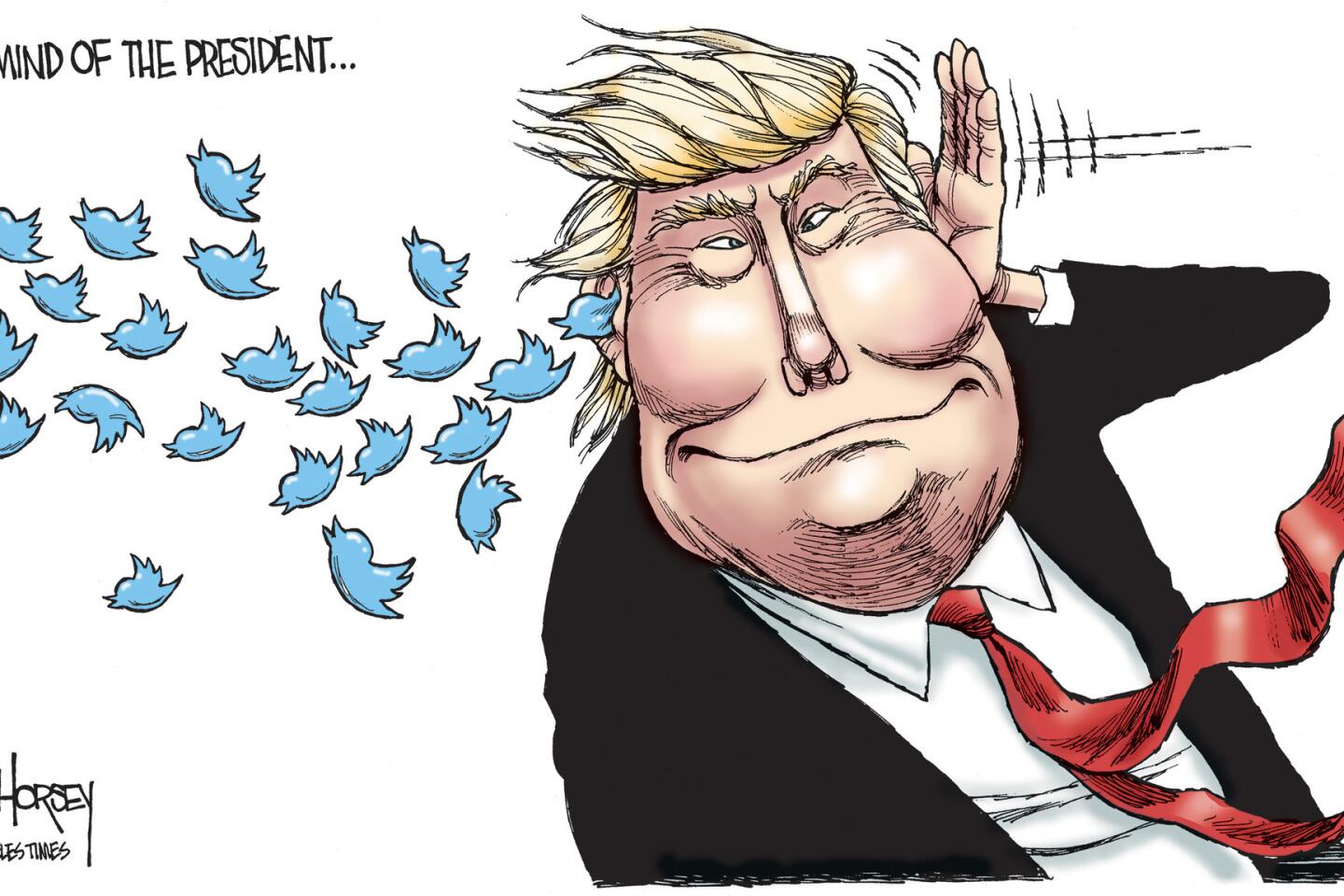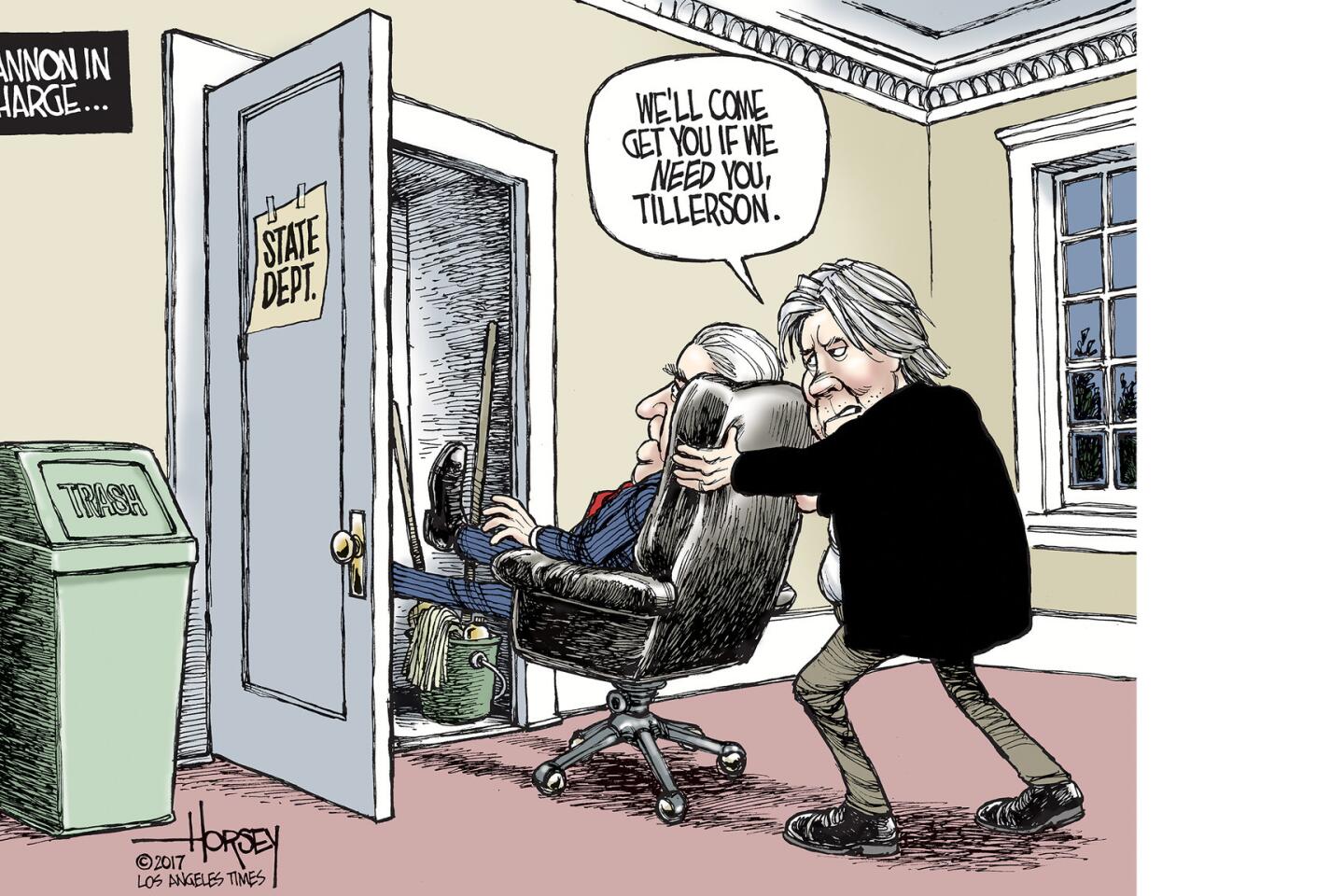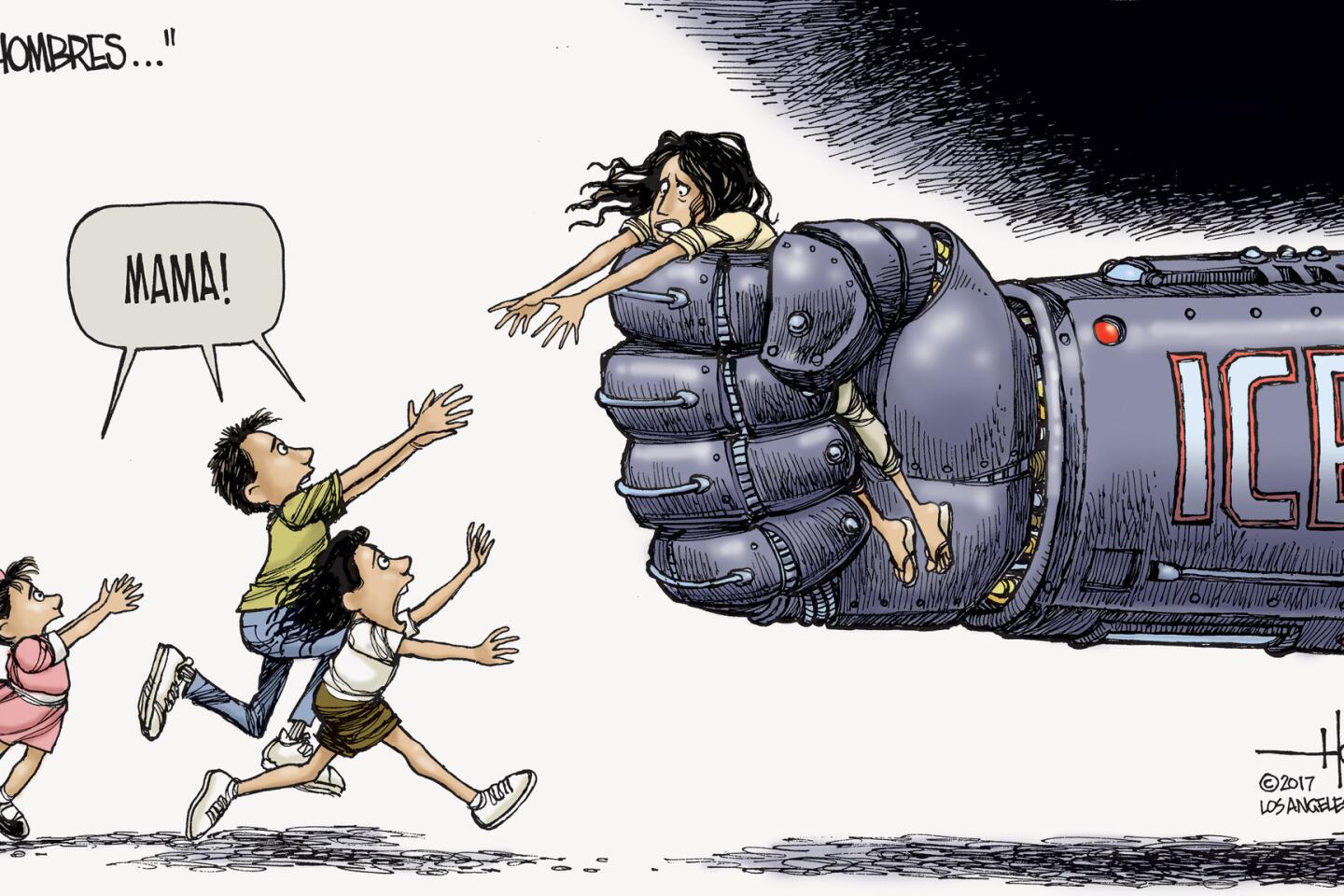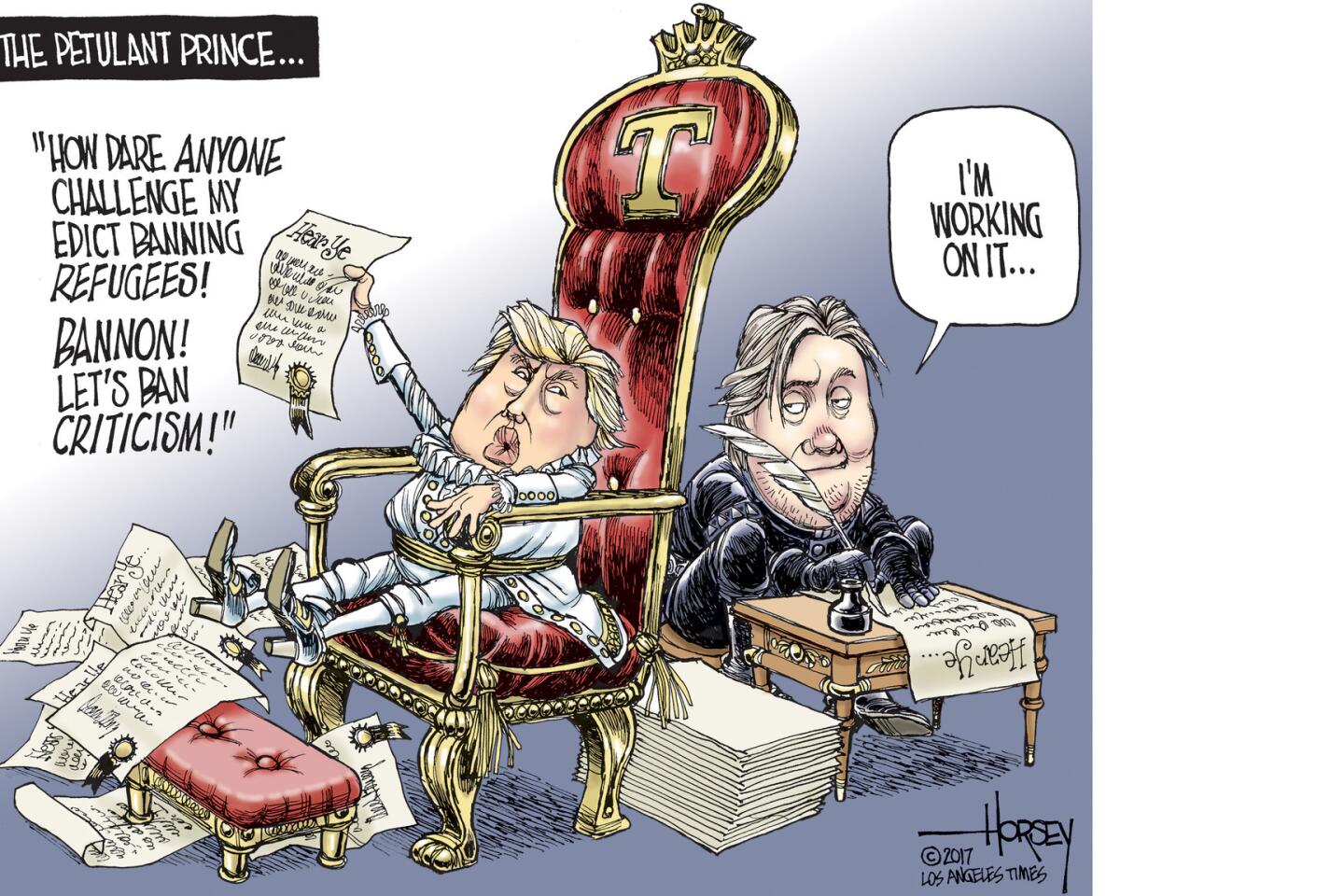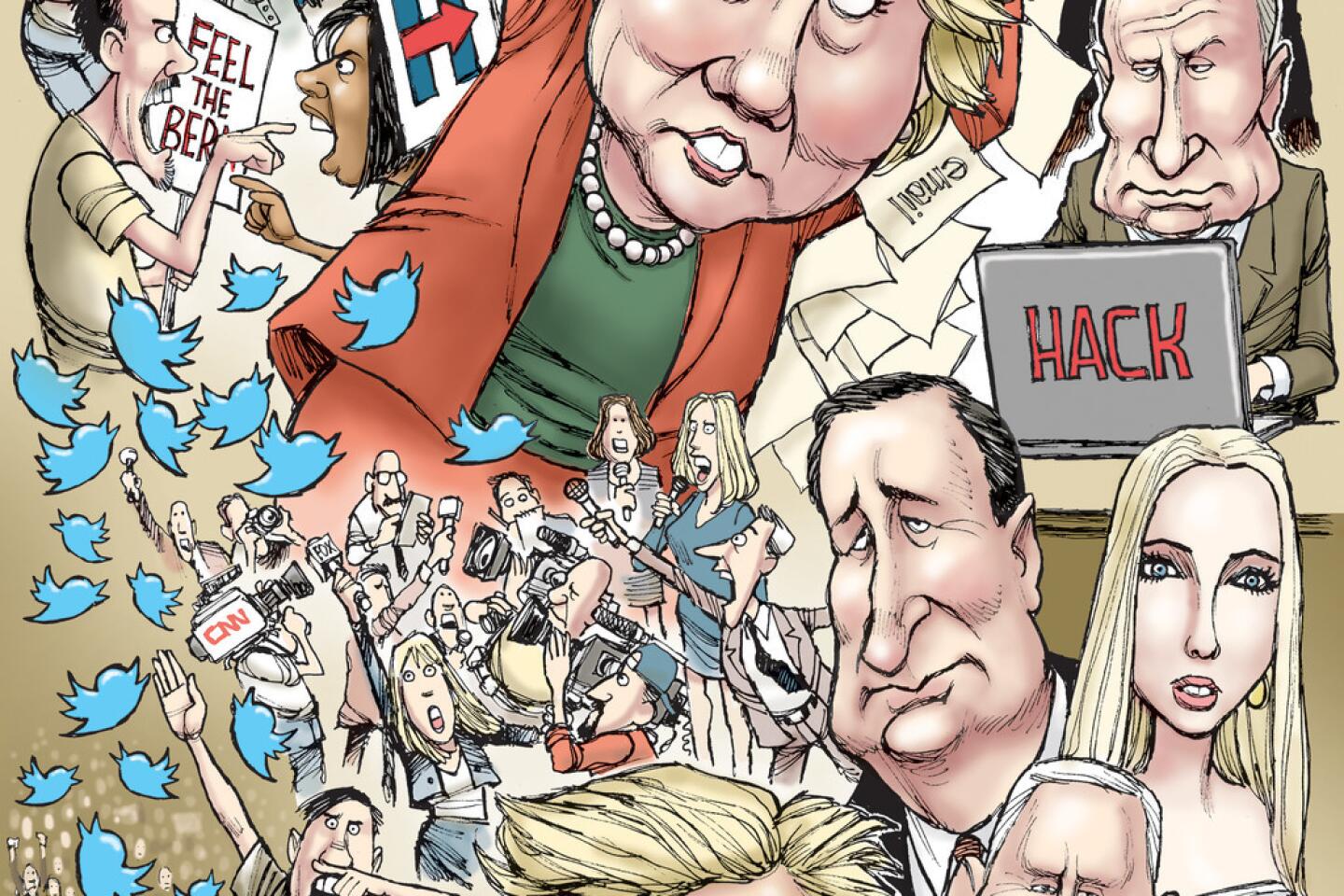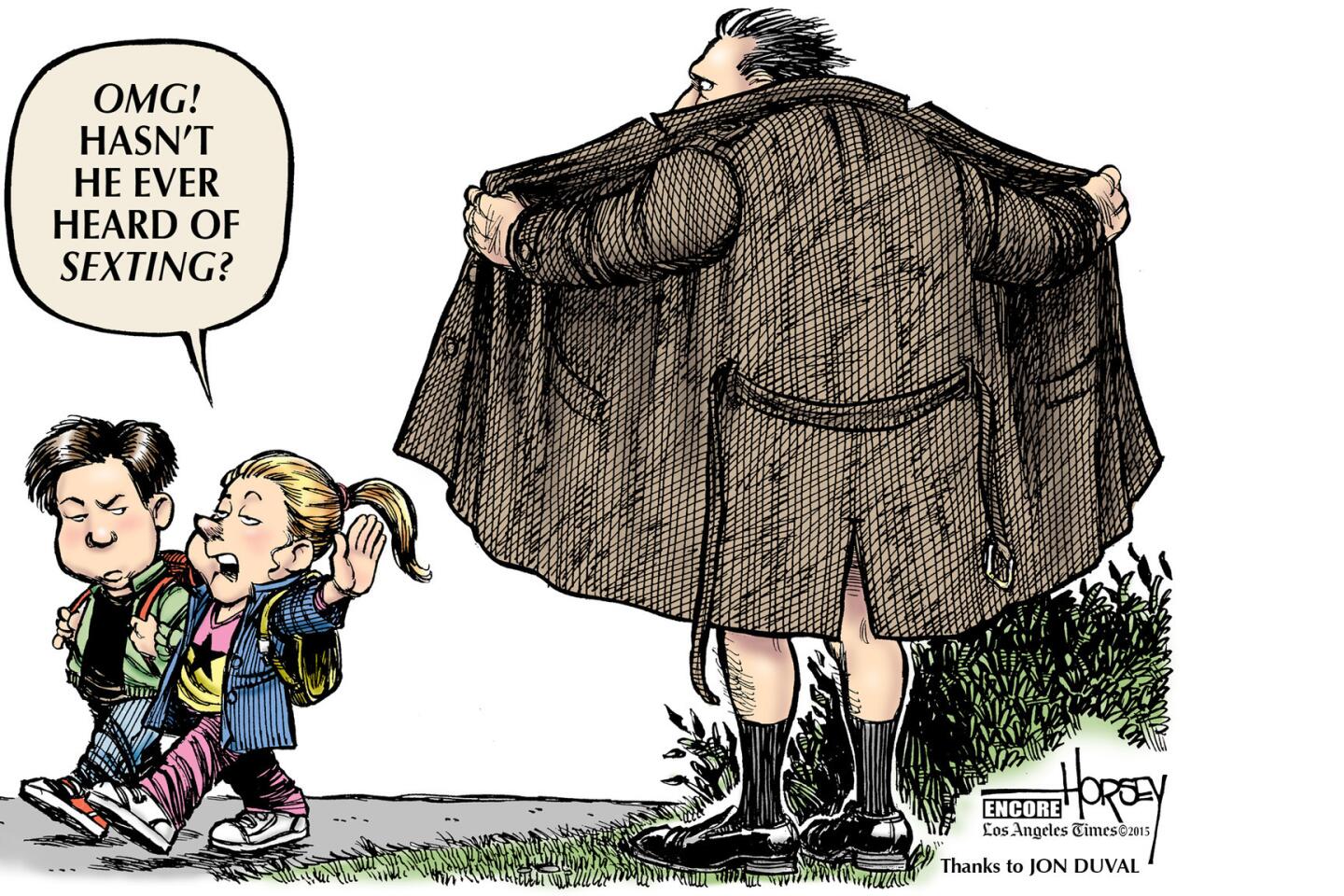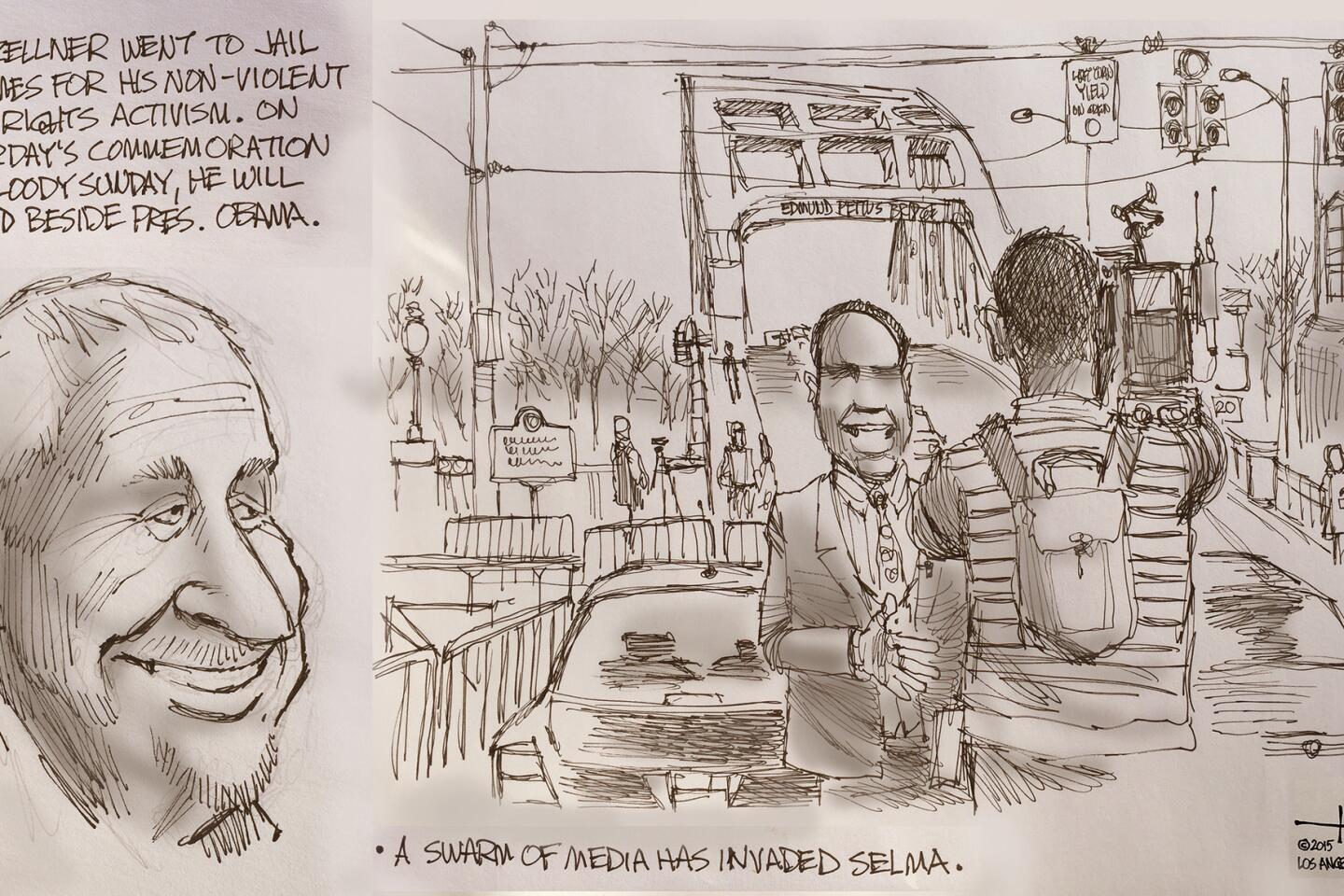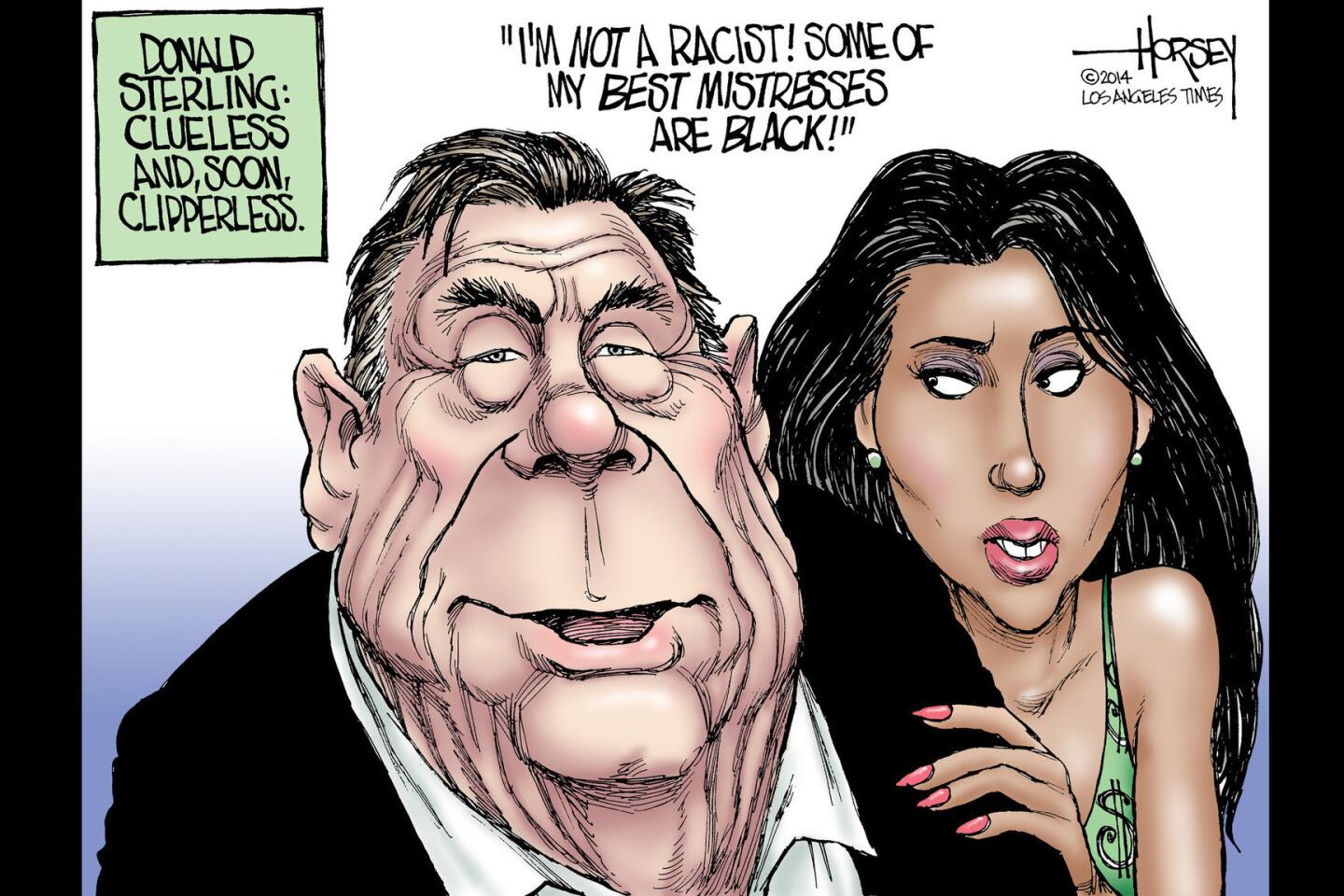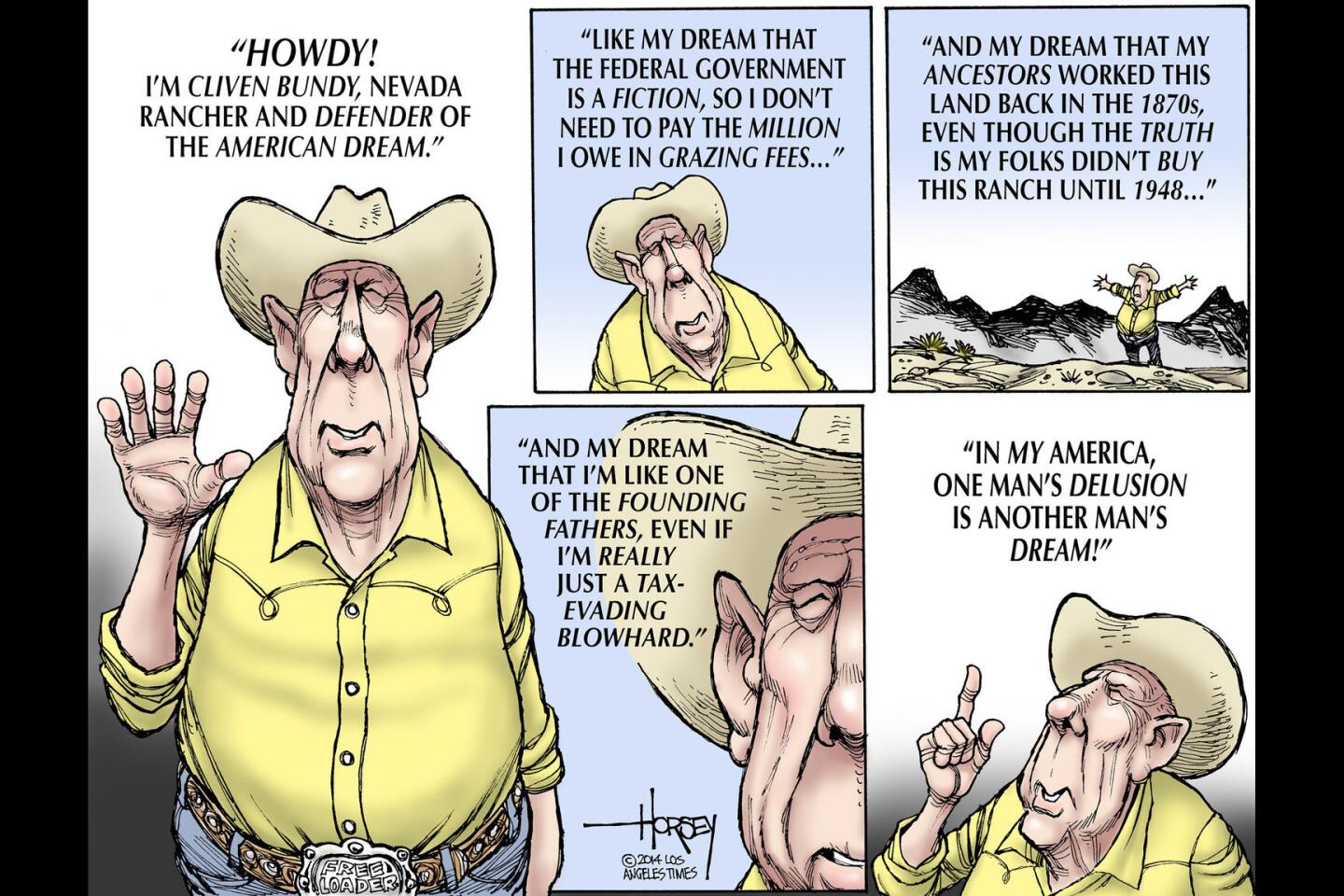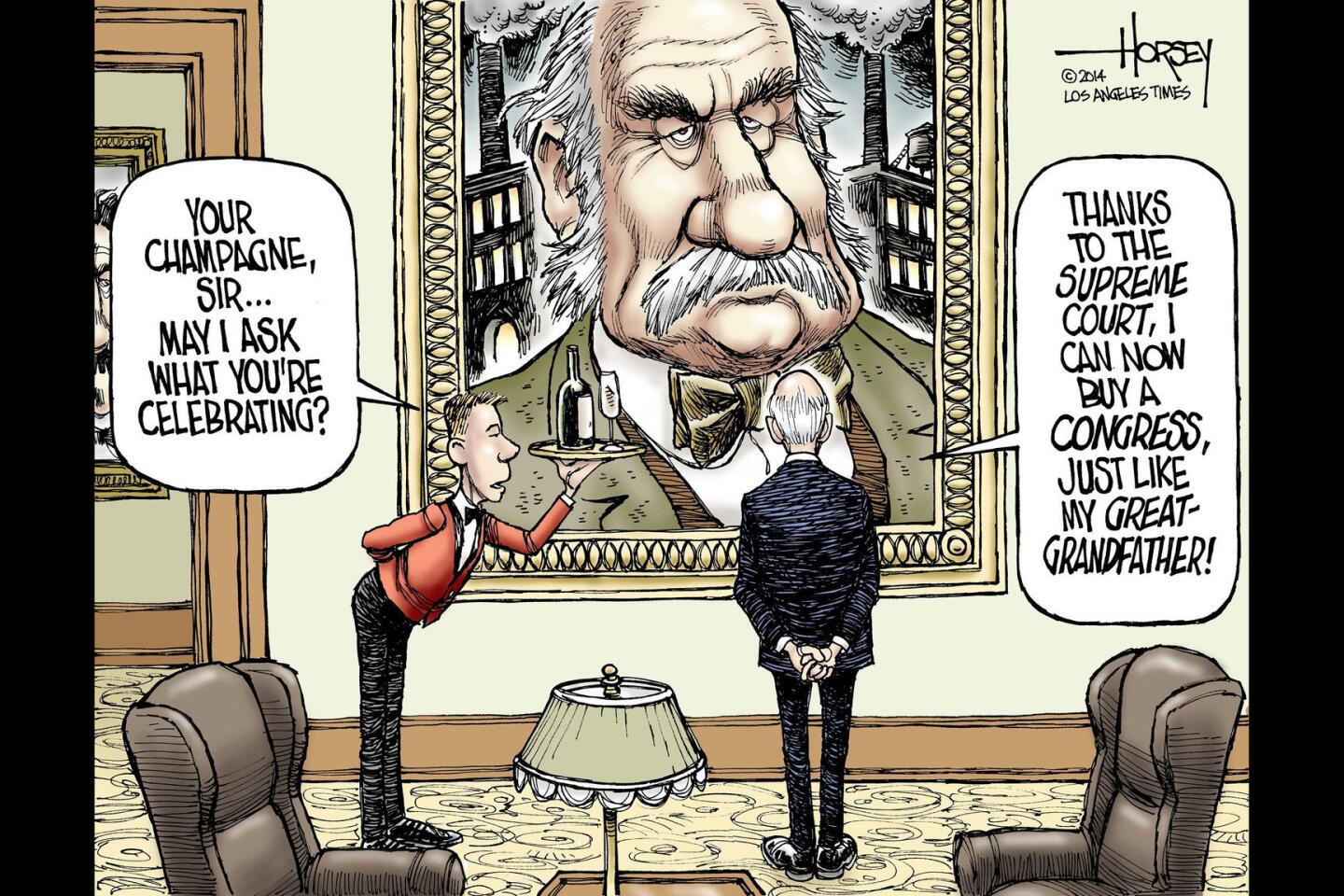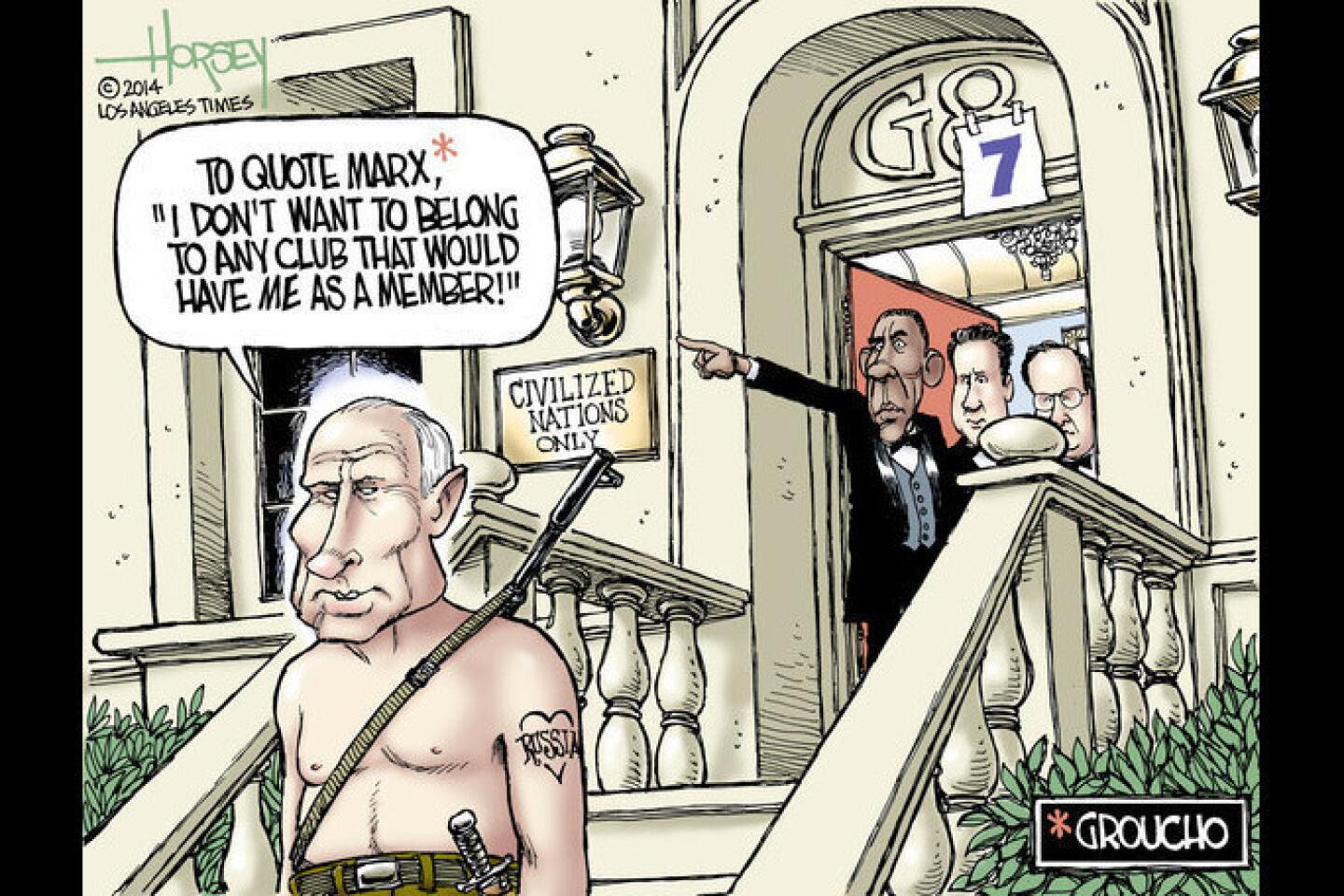As the $20 bill gets a new face, Andrew Jackson’s sins are recalled
- Share via
Tubman is in, Hamilton is saved and Jackson is banished to the back of the bill. That is the news from the United States Treasury, where it was announced on Wednesday that the face of a venerable and brave African American woman will be the first to grace the front of the nation’s paper currency.
Harriet Tubman, a slave who escaped from bondage and then devoted her life to freeing more of her brothers and sisters from the South’s slave empire, will soon take center stage on the $20 bill. For years there has been a push to make room for someone besides famous white men on the money that passes through our hands every day. A weak attempt was made when suffragette Susan B. Anthony and, later, Shoshone guide Sacagawea took their turns on the little-used dollar coin. Though the image on the Sacagawea coin, in particular, was lovely, agitation for a non-white, non-male person on more heavily utilized currency only increased.
RELATED: Harriet Tubman is the next face of the $20 bill; $5 and $10 bills will also change
Last June, the Treasury laid out plans to pick a worthy female to replace our country’s first Treasury secretary, Alexander Hamilton, on the $10 note. That scheme ran into resistance, not only from feminists who insisted a woman should get the prime spot on the more ubiquitous $20 bill, but also because Hamilton, a lesser-known Founding Father, had suddenly become cool with the kids, thanks to the huge success of the Broadway rap musical “Hamilton.”
While Hamilton’s new fan base has insured his face will stay on the $10, President Andrew Jackson’s popularity has been falling, making him an easier target for demotion.
For decades, Democratic Party organizations around the U.S. held annual Jefferson/Jackson dinners, named to honor the two leaders considered to be the fathers of the party. Recently, though, activists have complained that both Thomas Jefferson and Jackson were slave owners and, therefore, are no longer the best representatives of modern, multi-ethnic Democrats. Jefferson has a long list of redeeming attributes that makes it possible to counter the ire of revisionists. The author of the Declaration of Independence openly recognized the evil of slavery, even if he could not break from the economic thrall of the institution. Jackson, on the other hand, is harder to defend. Not only did he have an early career as a slave trader, there was the heinous matter of genocide.
As president, Jackson engineered the forced removal of peaceful Native American tribes from their homes in the South to lands west of the Mississippi River. For the most part, these were people who had assimilated and become farmers and shopkeepers. That did not prevent the confiscation of their property and a forced march along the notorious Trail of Tears, where the Indians died by the thousands from hunger, cold and disease. This racist land grab by white settlers and slaveholders was opposed by 19th century notables such as Davy Crockett and Ralph Waldo Emerson. It was also declared unconstitutional by the U.S. Supreme Court. Jackson ignored them all and heartlessly enforced the policy.
Jackson has had more than enough time in an honored place on our currency (his image bumped the picture of President Cleveland from the bill in 1929). Besides, he will not entirely disappear. Treasury Secretary Jack Lew said Old Hickory will show up somewhere on the back of the $20, if only in a representation of the equestrian statue that stands across from the White House in Lafayette Square.
These changes to the currency are, predictably, being derided by at least a few conservatives. Ben Carson, the failed Republican presidential candidate, called Jackson “a tremendous president” and said Tubman should perhaps be relegated to the nearly unused $2 bill. Kristin Tate, one of the numerous young libertarian women vying to follow Ann Coulter’s lucrative path into the right wing media’s pundit pool, was more caustic.
“We must remove historical figures to make room for a Muslim, a Native American, a Chinese American, an Indian and a transgender person,” Tate said, tongue firmly in cheek. “I personally suggest Caitlyn Jenner. Anything less would be offensive.”
It is obviously impossible for the conservative chattering class to resist characterizing these changes in America’s currency as pathetic political correctness, but it is worth noting that a lot of them have been lobbying to get Ronald Reagan on the $50 in place of Ulysses S. Grant or on the dime, where he would bump liberal icon Franklin Delano Roosevelt. Objectively, though, should we open a space for yet another white male president before giving recognition to great American women and inspiring civil rights leaders? Our history is richer than that.
MORE FROM OPINION
Sorry, Harriet Tubman fans, paper money isn’t what it used to be
Absurdity reigns in campus sexual assault trials
Why is the world of architecture so male-dominated?
More to Read
A cure for the common opinion
Get thought-provoking perspectives with our weekly newsletter.
You may occasionally receive promotional content from the Los Angeles Times.





